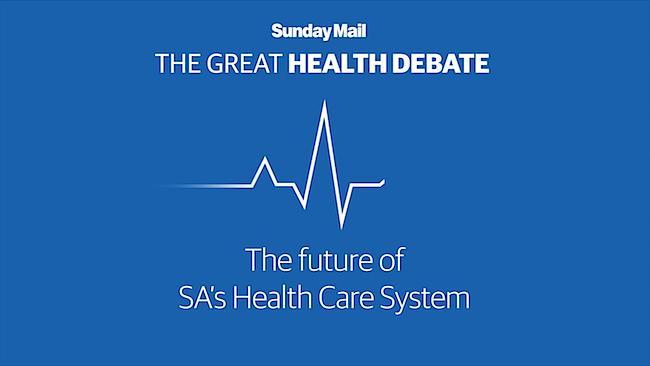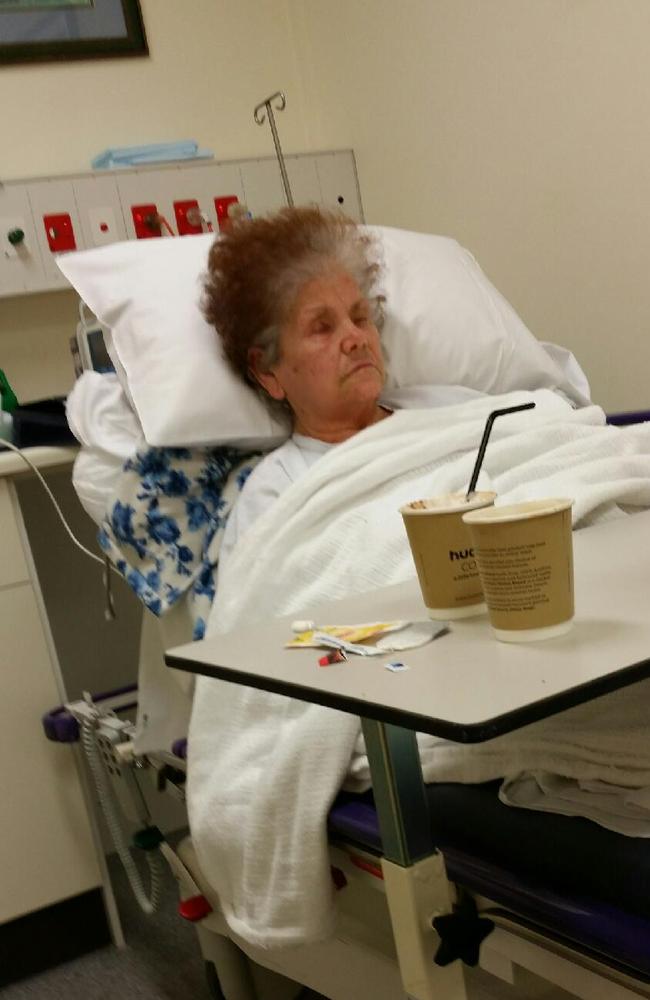Public ED gridlock means patients with health cover waiting more than 24 hours for ward bed
THE emergency department gridlock has spread to the private system, with ambulances bypassing full private hospital EDs and patients with health cover waiting more than 24 hours for a ward bed.

- Don’t expect ambos at all traffic incidents
- Public hospitals in critical condition
- Hospital ED was ‘on verge of violence’
THE emergency department gridlock has spread to the private system, with ambulances bypassing full private hospital EDs and patients with health cover waiting more than 24 hours for a ward bed.
The crush comes as SA Health leases beds from private hospitals to ease growing pressure on the public system.
Patty Douvos found her mother and sister, who were both ill with a virus, collapsed in their North Plympton home on Wednesday morning when she went to visit them and called for an ambulance.
“They are right near Ashford Hospital and we had private cover but the ambulance people told us Ashford was full and they took us to Calvary Wakefield instead,” she said.
“At Wakefield, we were told there were no beds – we got there at about 11.30am on Wednesday and my sick mother and sister both had to spend the night in the ED. What’s the point of having private health cover if there are no beds?”
Ms Douvos’ mother Dafni Constanti, 83, and sister Helen Constanti, spent more than 24 hours in the ED.

Calvary Health Care, which runs non-for-profit hospitals across Australia, did not respond to queries, while an Ashford Hospital spokeswoman refused to comment.
To ease pressure on the system, ambulances will no longer automatically attend traffic accidents – a move the Opposition says puts patient lives at risk. A directive, which was not publicly announced as part of the State Government’s package to reduce the strain, will see a change to the long-established practice of sending an ambulance to all accidents.
Instead, the SA Ambulance Service will rely on advice from people at the scene on whether an ambulance is needed – putting the onus on first responders to make medical assessments. The move follows the sudden change of policy which now sees nurses sent to some low priority 000 calls instead of ambulances.
Opposition health spokesman Stephen Wade said it was policy “on the run”.
“This increases the risk to patients, and the stress on first responders,” he said, singling out the Country Fire Service as people first on the scene who will be expected to decide if an ambulance is warranted. “It is a downgrade to a service and another example of Labor mismanagement leading to knee jerk, on-the-run management.”
However, Ambulance Employees Association state secretary Phil Palmer welcomed the move. “Our members have been concerned that they were sent to every motor vehicle accident no matter what,” he said. “Not attending a scene that doesn’t need an ambulance is a sensible initiative.”
The policy change comes as complaints continue to flow over meal service at the Royal Adelaide Hospital, which Health Minister Jack Snelling put down to isolated problems as staff and contractors Spotless get used to the new facility.
He also rejected rumours a Rahbot delivery robot had fallen down a lift shaft.
